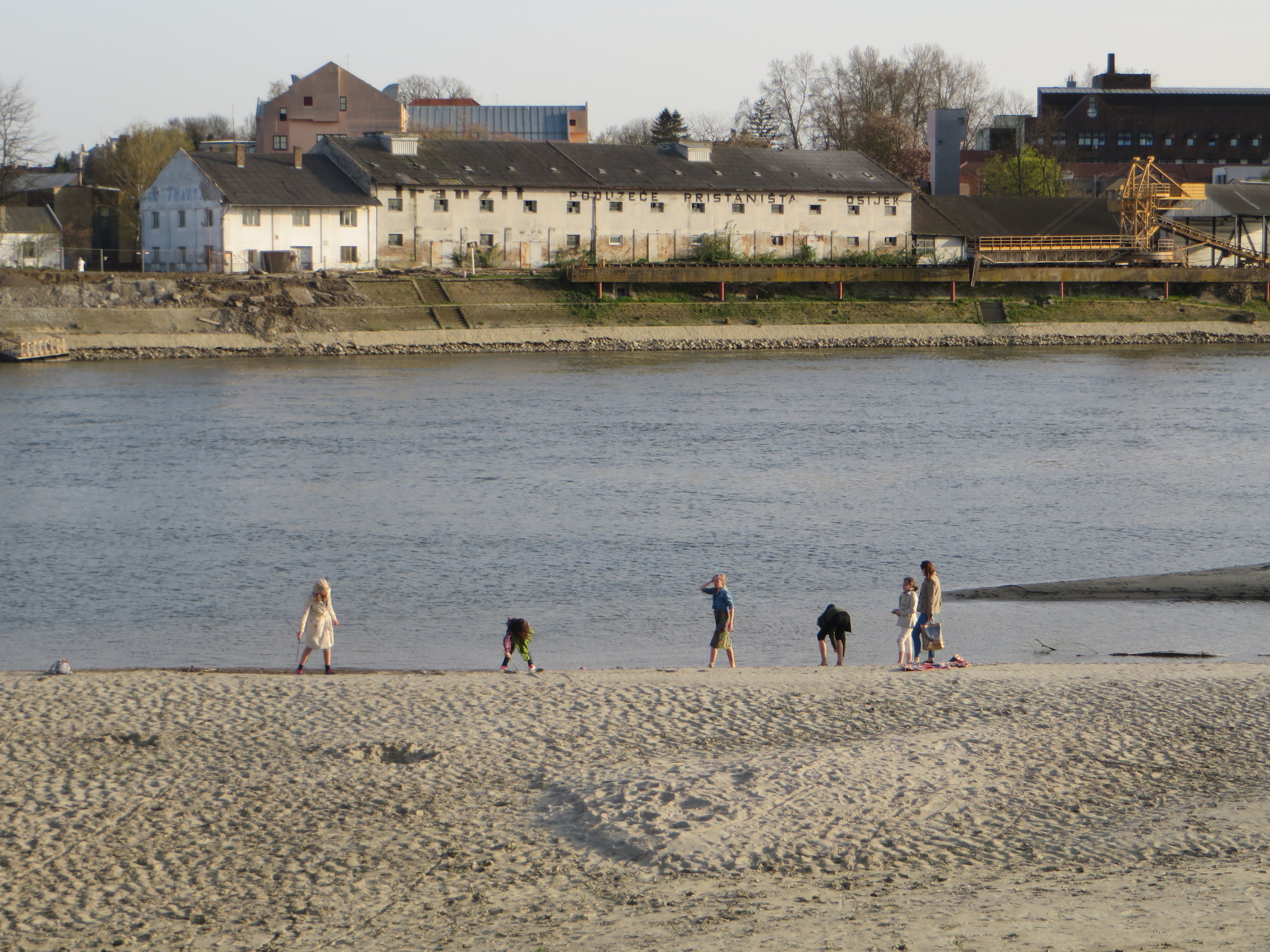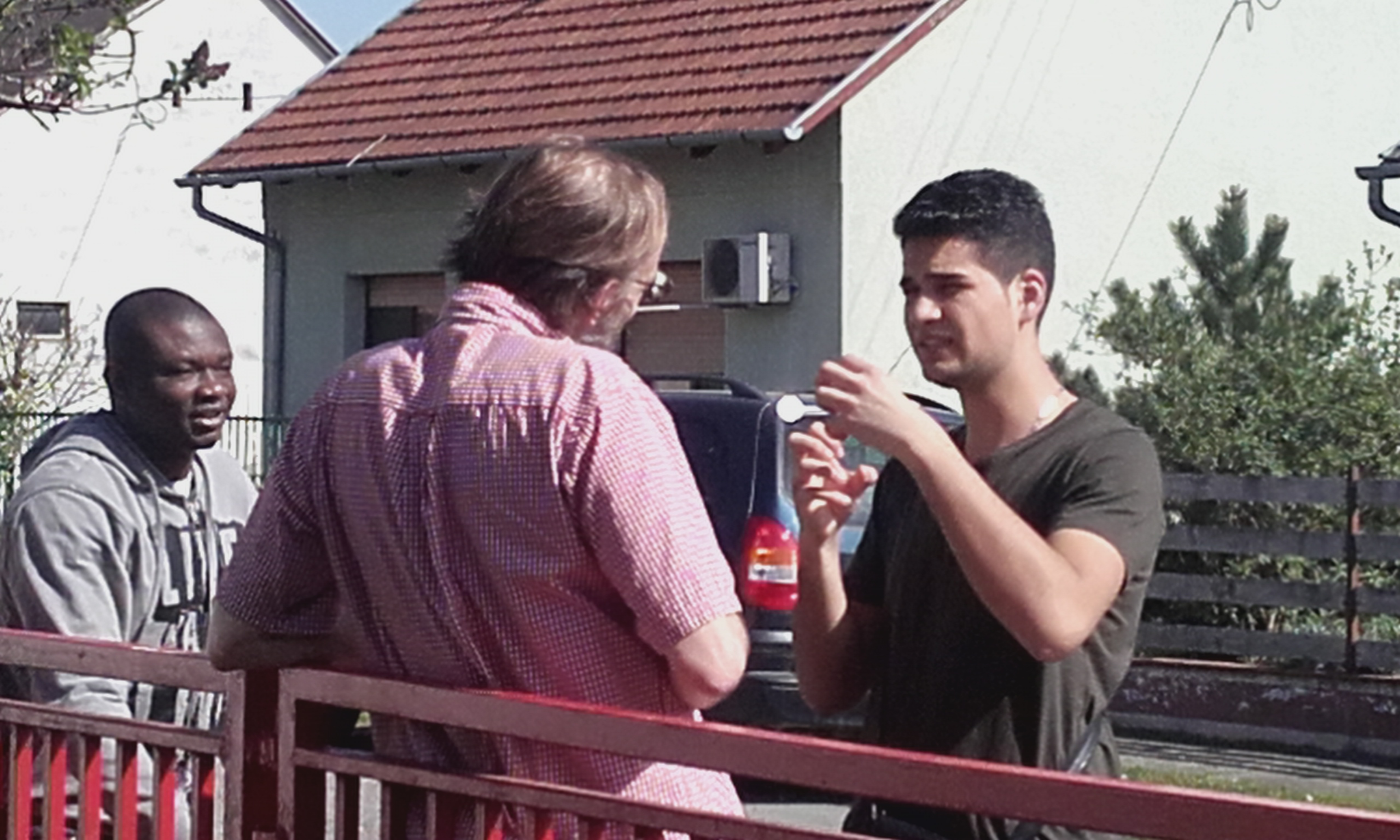
The border police raised his eyebrows. He saw a Dutch car approaching full with four kids. And he asked:
“Where do you come from?
Osijek.
“Why?
We live there.
“Really? He answered in a low voice. He looked into our car at our children and said:
“How do your kids get educated?
We do distance education.
“Really?
Yes.
We could see him thinking: “Strange, if you want to live in Croatia, go and live in Dalmatia. Not here, in an area where people will get out whenever they have the tiniest possibility. You are not even allowed to get a paid job here. And there are still unsafe places with mines in the woods around the city. And you just come and live here, out of your own choice.
This was a conversation at some point when we crossed the border from Croatia into Hungary in Beremend. And of course, this question comes back into my mind, once in a while. Why on earth do we live here?
Is it worth it? For example, to do homeschooling while there are such great opportunities for education back in the Netherlands? People sometimes say: We know that Jelle is doing something with Roma languages, but why don’t all Roma just read the national language? Than you guys can go home and do something else.
It is true that many Roma in Croatia speak Croatian, although some (or many?, we simply don’t know yet how many) of them use another language at home. Now, if some/many Roma speak Croatian, that raises the question whether translation in a Roma language is needed. It depends, for example, on de level of competence in the one or more languages that people speak and read.
This is what I personally have to say to this: (this is something of a confession;)
I grew up in a large Dutch Reformed family. We read the bible three times a day after our meals and also before bedtime. We read not just any Bible, we read the -best ever- translation, the venerable Statenvertaling from 1636. (Comparable with the King James in England.) We were also warned against other translations: not as accurate as this good old one.
But I am a -little- rebellious. (Not very much, I was usually a pretty obedient girl, not too many games with boys, nothing with alcohol, drugs or other stuff.) But one day I did something that I was not supposed to do: I read the Bible in a newer translation.
And at that time this happened: Although I had been reading the bible every single day of my life, I did not understand everything. Quite a bit went over my head actually, because the translation is ancient. It is just not the language I use in daily life and I couldn’t connect with lots of parts of it. And for that reason it can be very helpful to read also current translations and than compare and study and try to understand some of the struggles translators are going through. For the first time of my life (I was 28 years) I understood what Paul actually was saying. And I could understand that we do not always want to understand what he meant. Because, it is easier if you don’t understand it all. (Paul is pretty radical, you know.)
And I think that a tiny seed that was planted through my faithful parents at some point, came around that time to the surface and I decided that I was willing to give my life to support the work of Bible translation.
And as a result of that this happened: We want to make the Bible available to Roma in whatever language is best for them (whether a Roma language or not.) It is one of Jelles tasks to sort that out and we have seen in the last year that you really cannot do that from an office somewhere in the Netherlands. It is very helpful to be here to meet people and to have unexpected meetings and discoveries. If you like to read more about Roma Bible Union; you can find it here.
There is one more argument:
I think that my English is not very bad for a second language. Of course it is not without mistakes. (I am very fond of spelling control.;) And before posting something I have to let somebody edit. It is not perfect but I can write such a blog as this pretty easily. But reading the Bible in English gives me still the feeling that there is a curtain, a veil before the words and therefor they don’t sink in as deep as my very own mother tongue.
I will do whatever is possible to make the Bible available for every Roma that speaks best to them. They deserve to read and hear these words even if that means translation work. And the way I can support this is by giving my husband room to do his work. It is an honor.
Some people told us that they have been praying for years for us, every single day. And we are very aware that this is the foundation of the work in Gods Kingdom. You can subscribe to our monthly prayer letter.
You can also support this work financially. We don’t get a salary but are surrounded by an faithful group of people who believes that this work is important. We are very grateful for that. That we have been able to be involved in mission work for the last 9 years is a testimony to the faithfulness of God. Praise be to God.
Thanks for reading, thank you for journeying with us.
Janneke (and someone behind the scenes.)
